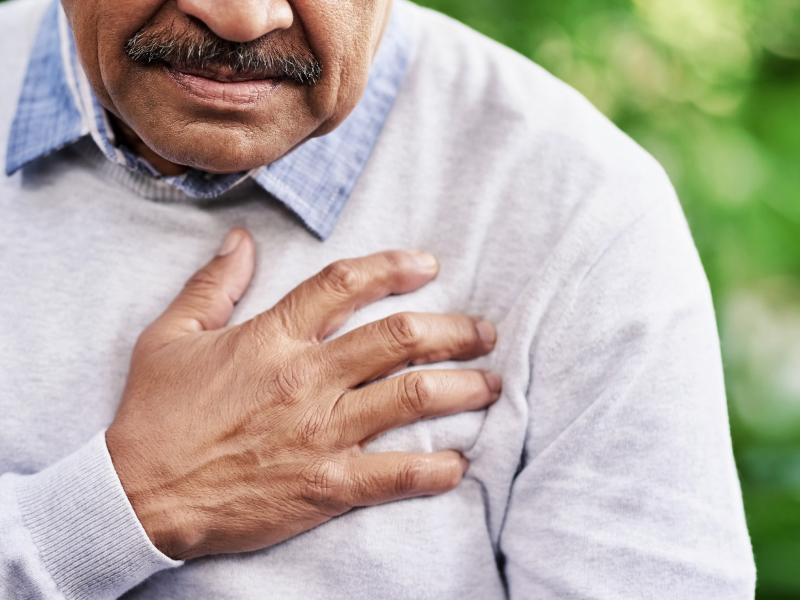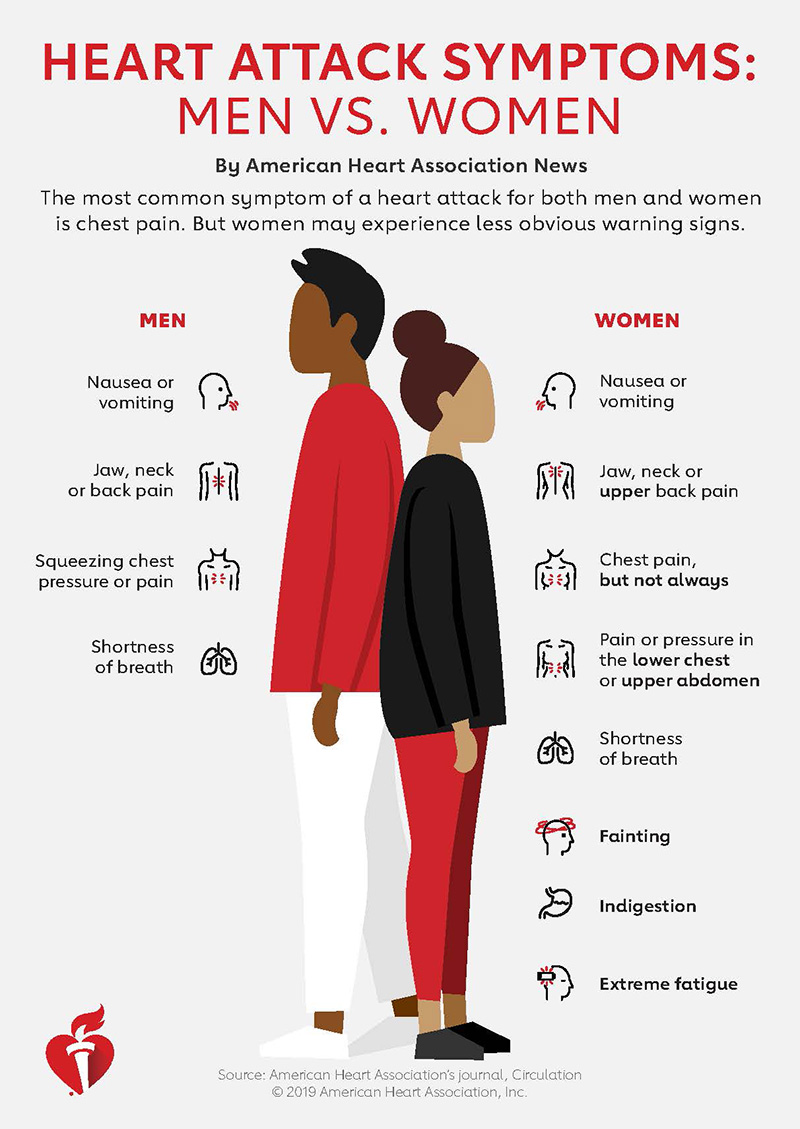Get familiar with signs of a heart attack or stroke
By American Heart Association News

Most people realize getting medical help quickly is crucial in response to a heart attack or stroke. But it's important to know the signs so you can act.
"It is an emergency. People need to call 911," said Dr. Erin Michos, associate director of preventive cardiology at the Johns Hopkins Ciccarone Center for the Prevention of Cardiovascular Disease in Baltimore.
Emergency medical responders can begin evaluating a potential heart attack or stroke, and start treatment before arriving at a hospital, she said.
Heart disease is the nation's leading killer, and every 40 seconds someone has a heart attack.
A common symptom is chest pressure or pain that may feel like tightness or squeezing, which can spread out to the arms. Other possible heart attack symptoms are shortness of breath, nausea, indigestion or pain in the jaw or back.
If these symptoms come on suddenly and last at least 15 minutes, despite sitting down and resting, it's a "red flag" that a coronary artery blockage may be restricting blood flow to the heart, Michos said.
Women more often experience symptoms other than chest pain, wait longer before seeking help and attribute symptoms to other causes, Michos said. Young, seemingly healthy women without known heart disease risk factors might experience an uncommon form of heart attack caused by a tearing in the coronary artery wall. This is known as SCAD, or spontaneous coronary artery dissection.

"Heart attack can happen to anyone, even young women," Michos said.
The sooner medical treatment begins, the better the chances of preventing heart damage. But people shouldn't try to drive to the hospital.
"A heart attack can trigger a dangerous heart rhythm. You don't want to be in a car if this is happening," said Michos, who suggests chewing an aspirin while waiting for the ambulance. For heart patients who have nitroglycerin tablets, take one, she said.
Just like a heart attack, a stroke is an emergency. Quick help increases the likelihood of saving brain tissue.
An ischemic stroke is the most common type and is caused by a clot that blocks blood flow to the brain. The clot-busting drug alteplase typically delivered through an IV may reduce the likelihood of permanent disability if it's administered within three hours.
"Earlier is better. This is a really narrow time frame," Michos said. "Three hours goes by really fast."
A less common type is a hemorrhagic stroke, caused when a blood vessel in the brain ruptures.
The acronym FAST can help identify stroke symptoms. The "F" stands for face drooping; "A" for arm weakness, "S" for speech difficulty; and "T" for time to call 911. An updated version is BE-FAST that adds "B" to signify balance problems and "E" for eyes to represent sudden vision changes or vision loss.
To help keep a cardiovascular emergency from happening, adopt a heart healthy lifestyle and know your numbers for risk factors such as high blood pressure and diabetes.
Michos was among the experts who wrote prevention guidelines issued last year by the American College of Cardiology and AHA. The recommendations emphasize a healthy diet and physical activity and to involve patients in health decisions.
"A healthy lifestyle is the foundation for all preventive efforts," she said. "We encourage patients to be really engaged and be champions of their health."
If you have questions or comments about this story, please email [email protected].




